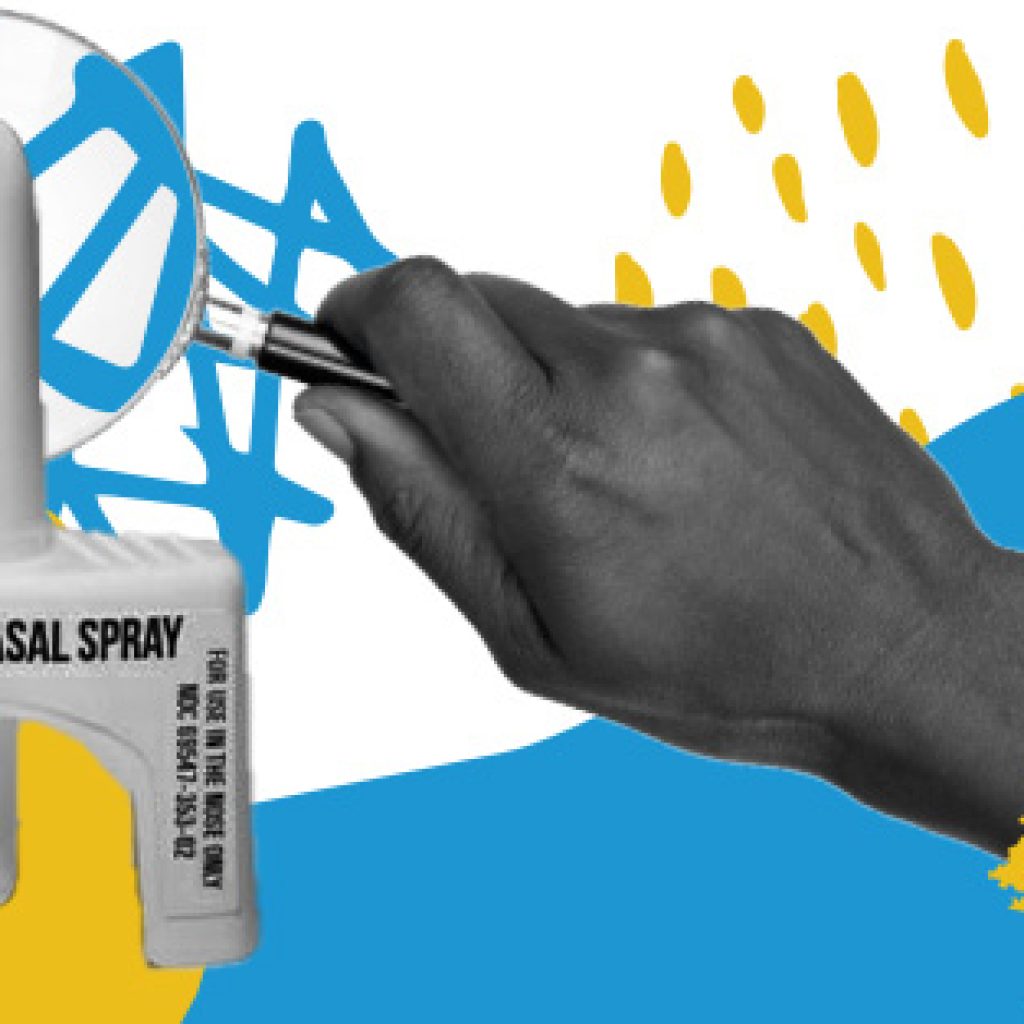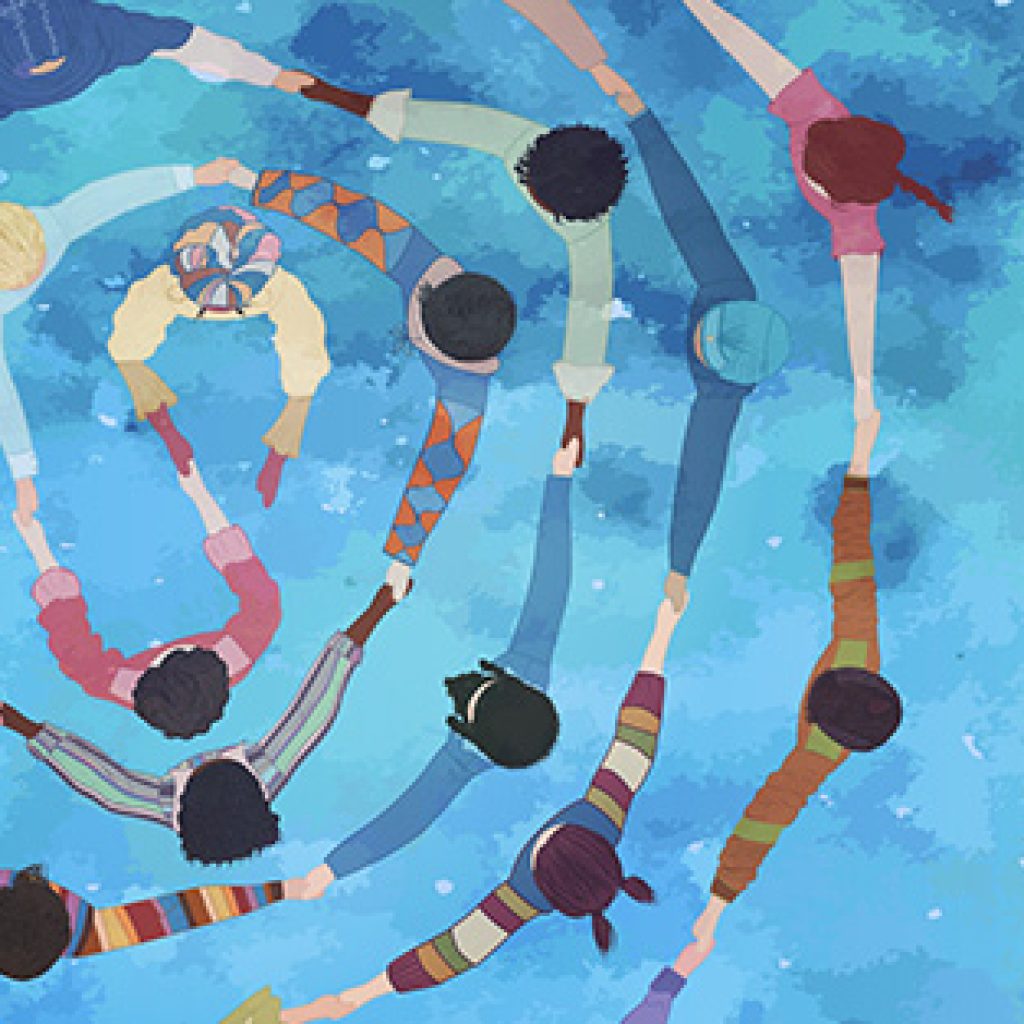How COVID-19 Can Impact People in Recovery and What Providers Can Do About It
How COVID-19 Can Impact People in Recovery and What Providers Can Do About It

One perspective on How COVID-19 Is Impacting People in Recovery from Mental and Substance Use Disorders
The clever animation above illustrates how social distancing can reduce the spread of infectious diseases such as COVID-19, Novel Coronavirus (The Spinoff, retrieved March 24, 2020). The animation shows that our actions (or lack thereof) impact hundreds or thousands of people. Most people are willing to cooperate as a community to help defeat COVID-19. Even though the impact of social distancing is uncomfortable and inconvenient for everyone, it seems logical that those with mental and substance use disorders may be more severely affected by social distancing. But is that really the case and does being unable to meet face to face with care providers, peers, and particularly in groups necessarily have a negative impact on those in recovery?
The very nature of treatment and recovery seems to support the potential for problems. Writes one author, “Given the high degree of socially driven support and reliance on recovery affirmative connection, one may wonder the impact of the COVID-19 virus and social distancing practices on such a community” (Brown, 2020). For those concerned about how people in recovery are doing, you may be surprised by his answer. Citing William L. White’s book Recovery Rising: A Retrospective of Addiction Treatment and Recovery Advocacy, Austin McNeill Brown writes about several characteristics of the recovery community that may have set them up for success during the COVID-10 crisis because they have come to rely on one another in ways people who are not in recovery would have trouble understanding. These beneficial characteristics of the recovery community are:
- a philosophy of “one alcoholic/addict helping another,” that has existed since at least the 1930s,
- the “grassroots nature” of recovery organizations,
- a fundamental spirit of altruism,
- the “decentralized and self-supporting nature of the community, create a well-suited model for response and adaptation to a crisis,”
- the ability to mobilize in response to crises,
- a fundamental distrust of policymakers and officials cue to their ongoing marginalized and stigmatized status (and resulting low priority for most governmental systems) that has led to a highly networked and self-reliant community that is poised to respond.
As a result, the response of the recovery community to the COVID-19 outbreak has been to mobilize. Brown goes on to describe excellent examples of how quickly recovery organizations have responded or mobilized, calling upon “the goodwill, knowledge, expertise, and networks that they have built up over decades of marginalization (Brown, 2020). He adds that at this point we don’t know if it is enough but that it is important to also note that the support and services provided are mostly free and available to anyone, adding to their value.
Another Viewpoint
A different perspective is offered in a 3-Minute Listen on Morning Edition (transcript available) COVID-19 Outbreak Impacts People In Addiction Recovery posted this morning on NPR (Bebinger, 2020). In an interview with Dr. Marvin Seppala, chief medical officer at the Hazelden Betty Ford Foundation and a client in methadone treatment for heroin, a different viewpoint is revealed. “Emma” is waiting in line for her daily treatment medication. She still uses, but not as much and for her the main change is that the weekly groups she used to attend are no longer being held. While she does miss the support group, she attends AA meetings, mostly online now. She would like to be given “take-homes,” doses of methadone that patients can take at home. Although federal agencies have eased up on restrictions to accommodate the realities of COVID-19 and the Opioid crisis, clinics are just starting to implement the new rules. According to Seppala, who considers addiction a “disease of isolation,” people in recovery are now being told to stay home and use the telephone and internet. Some additional concerns expressed by Seppala were:
- The amount of work needed to help people in recovery adapt to telehealth counseling, online meetings, social networking and computer or telephone applications,
- The fear of coronavirus that drives anxiety that can result in relapse,
- The compromised immune systems and health conditions that co-occur or result from some substance use disorders, such as chronic lung disease,
- And the potential difficulty for providers in trying to differentiate between COVID-19 and similar symptoms associated with withdrawal, particularly without freely available tests for the virus.
These two differing points of view underscore the complexity of the potential for negative impact on those in recovery. This also highlights the importance of “recovery capital” and the often disparate resources of people in recovery that determine whether they are able to maintain recovery or relapse. The topic of recovery capital is addressed in more detail in the following previously published CASAT OnDemand blog posts:
- National Recovery Month 2019: How Behavioral Health Providers Can Support Sustained, Long-term Recovery
- Peer Recovery Support Workers: The Research Says “Yes!”
- Takeaways for Using Medication During Treatment: A Quick Look at TIP 63
- Overcoming Barriers to MAT: Bridging the Gap Between Research and Treatment in Nevada
What Can People Do to Support Recovery During the COVID-19 Outbreak?
For policymakers it is imperative that existing barriers to treatment and recovery services be reduced or eliminated to provide continuous service to those in recovery. Behavioral health providers might consider offering free online therapy if they or their organizations do not do so currently. Those in recovery need to continue in existing networks, using alternative methods if necessary, and seek out alternatives, and they should consider finding ways to serve others in this trying time (Brown, 2020). A wealth of resources to assist providers have been developed. Some resources and links have been available since before this pandemic and many others have been developed in response. For Opioid treatment providers (OTPs) the AATOD has issued a Guidance in Response to the Coronavirus (COVID-19). New resources appear almost daily. Some of the most helpful are listed below. Additional resources and links will be made available in the CASAT OnDemand Resources & Downloads section of the website as they appear. If you do not find a resource you need let us know in the comments.
What resources have worked for you as a provider? As a person in Recovery? Share in the comments below!
Resources and Links
Federal and National Resources
- Centers for Disease Control and Prevention (CDC) Mental Health Tools and Resources
- Substance Abuse and Mental Health Services Administration (SAMHSA) – The purpose of the Technology Transfer Centers (TTC) is to develop and strengthen the specialized behavioral healthcare and primary healthcare workforce that provides prevention, treatment and recovery support services for substance use disorder (SUD) and mental illness.
- The Technology Transfer Center TTC) Program
- Addiction Technology Transfer Center Network (ATTCs)
- Mental Health Technology Transfer Center Network (MHTTCs)
- Responding to COVID-19 – Upcoming webinars, products and resources for behavioral health providers, families and children, and first responders.
- SAMHSA Telehealth Resources
- SAMHSA Coronavirus (COVID-10) resources and information
- National Consortium of Telehealth Resource Centers – COVID-19 Telehealth Toolkit and more…
- American Association for the Treatment of Opioid Dependence, Inc. (AATOD) – Guidance to OTPs in Response to the Coronavirus (COVID-19)
- Bureau of Justice Assistance (BJA)-supported Comprehensive Opioid, Stimulant, and Substance Abuse Program (COSSAP – formerly COAP) COCVID-19 Resources and Materials Supporting Substance Abuse Programs and Recovery Efforts in the COVID-19 Environment:
- U.S. Department of Justice (DOJ)
-
- BJA’s COSSAP Webinar Series: New Resources to Help Individuals With Substance Use Disorders Build Recovery Capital: Digital Health Technologies
- Drug Enforcement Administrations (DEA), Diversion Control Division, DOJ, COVID-19 information page
- National Institute of Corrections (NIC), DOJ – NIC Coronavirus Information web site
- U.S. Department of Health and Human Services (HHS)
-
- Centers for Disease Control and Prevention (CDC), HHS – Coronavirus Disease 2019 (COVID-19) Resources for First Responders and Law Enforcement
- Coronavirus (COVID-19) Partner Toolkit by the Centers for Medicare & Medicaid Services, HHS
- “COVID-19: Potential Implications for Individuals with Substance Use Disorders,” National Institute on Drug Abuse, HHS
- Substance Abuse and Mental Health Services Administration (SAMHSA), U.S. Department of Health and Human Services (HHS), Coronavirus (COVID-19) resource page
- COVID-19 Public Health Emergency Response and 42 CFR Part 2 Guidance – In response to the Novel Coronavirus Disease (COVID-19) pandemic, SAMHSA is providing this guidance to ensure that substance use disorder treatment services are uninterrupted during this public health emergency.
- Resources supporting medication-assisted treatment (MAT) in the Coronavirus environment (including quarantine)
- Partners and Stakeholders
-
- Addiction Policy Forum – Free app to support people in recovery during COVID-19 outbreak
- The National Council for Behavioral Health web site
- Best Practices for Telehealth During COVID-19 Public Health Emergency – This document by the National Council for Behavioral Health is intended to provide the necessary background and resources necessary to help practitioners begin or expand the use of telehealth and includes a list of additional resources.
- The National Police Foundation Coronavirus (COVID-19): Resources for Law Enforcement
- COVID-19 Briefing for Law Enforcement vimeo
- Presentation on Coronavirus Disease 2019 (COVID-19) for Law Enforcement
Collegiate Recovery Resources
- SAFE Project – Virtual Collegiate All-Recovery Meetings
Nevada Resources
- Foundation for Recovery has turned some of their meetings into zoom meetings – Calendar
- NRAP has turned all meetings into zoom meetings – refer to the online calendar)
- Note – Able Music Therapy Services has created meetings on YouTube in the form of a Mental Health Playlist
- Reno Problem Gambling Center is creating zoom meetings (775) 284-5335
- Reps4Recovery is doing Instagram TV workouts IG @ reps4recovery
- Nevada Today – How can I tell if my child has mental health issues and what can I do to help?
Self-care Resources
- Gretchen Rubin, Inspirational writer – An evolving collection of COVID-19 resources in a variety of formats such as articles and books, lists of movies and songs, podcasts, and blog posts.
- Lerner Center for Public Health – COVID-19: Playing the Long Game for your Mental Health
References
Bebinger, M. (2020, March 24). COVID-19 Outbreak Impacts People in Addiction Recovery. Retrieved March 25, 2020, from https://www.npr.org/2020/03/24/820543018/covid-19-outbreak-impacts-people-in-addiction-recovery
Brown, A. M. (2020, March 20). Syracuse University. Retrieved March 24, 2020, from https://lernercenter.syr.edu/2020/03/20/mobilization-of-the-substance-use-disorder-recovery-community-in-the-time-of-coronavirus/
Morris, T., Easby A., Wilson, N., Wiles, S., and Wallace, R., The Spinoff. The side eye: viruses vs everyone, retrieved March 24, 2020.
White, W. L. (2017). Recovery rising: a retrospective of addiction treatment and recovery advocacy. North Charleston, SC: Rita Chaney.
Blog Post Tags:
Related Blog Posts
Related Learning Labs
Related Resources
.
- Buscar Tratamiento de Calidad para Trastornos de uso de Sustancia (Finding Quality Treatment for Substance Use Disorders Spanish Version)
- Finding Quality Treatment for Substance Use Disorders
- Focus On Prevention: Strategies and Programs to Prevent Substance Use
- Monthly Variation in Substance Use Initiation Among Full-Time College Students
- The National Survey on Drug Use and Health (NSDUH) Report: Monthly Variation in Substance Use Initiation Among Adolescents








